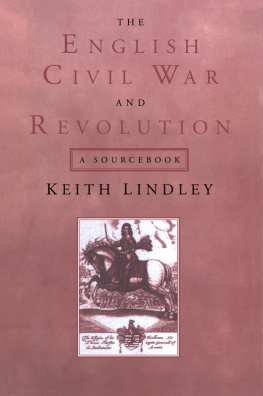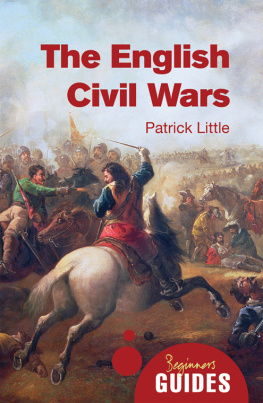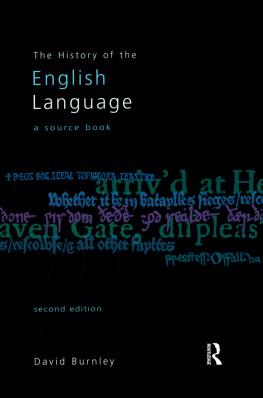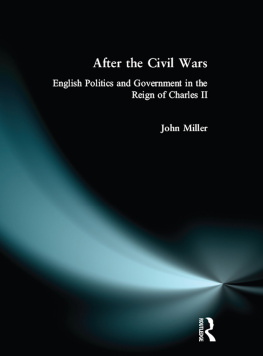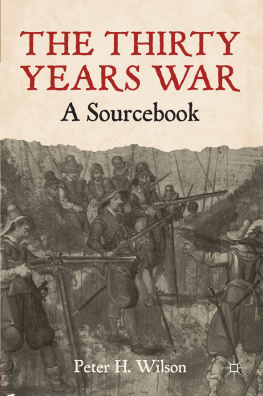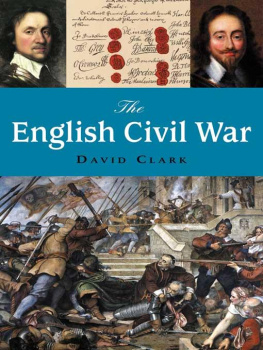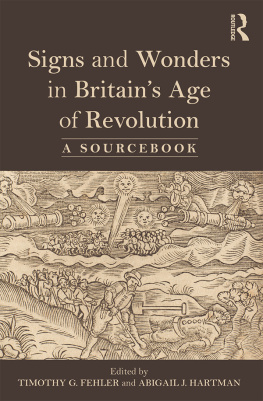THE ENGLISH CIVIL WAR AND REVOLUTION
The English Civil War and Revolution offers a wide range of accessible source material covering the principal aspects of the mid-seventeenth century crisis, and a guide to the progressive, revisionist, post-revisionist and other historiographical debates involved.
The source material offers different perspectives from various levels of society, drawing on controversial literature, official records, private correspondence, diaries, reports of grass roots reactions, minutes of debates, contemporary illustrations and petitions. Each document has an introduction which provides contextual information. The book also contains a comprehensive glossary of seventeenth century terms appearing in the source material and a chronology of events for reference.
Whilst familiarising students with some of the main sources used in contemporary historical debates, The English Civil War and Revolution contains many extracts from unpublished, manuscript sources. Source material is grouped thematically in relation to six key questions, thus aiding understanding of this complex period and providing a useful reference tool.
Keith Lindley is Senior Lecturer in History, University of Ulster.
THE ENGLISH CIVIL WAR AND REVOLUTION
A sourcebook
Keith Lindley
First published 1998
by Routledge
2 Park Square, Milton Park, Abingdon, Oxon, OX14 4RN
Simultaneously published in the USA and Canada
by Routledge
270 Madison Ave, New York NY 10016
Routledge is an imprint of the Taylor & Francis Group
Transferred to Digital Printing 2005
1998 Keith Lindley
All rights reserved. No part of this book may be reprinted or reproduced or utilised in any form or by any electronic, mechanical, or other means, now known or hereafter invented, including photocopying and recording, or in any information storage or retrieval system, without permission in writing from the publishers.
British Library Cataloguing in Publication Data
A catalogue record for this book is available from the British Library
Library of Congress Cataloguing in Publication Data
A catalogue record for this book has been requested
ISBN 0-415-17418-x (hbk)
ISBN 0-415-17419-8 (pbk)
Figures; from the Thomason Tract collection by permission of the British Library
I am grateful to Heather McCallum, the editor at Routledge, for originally suggesting this volume and for showing patience and understanding as I worked towards its completion. Ian Roy gave me some valuable advice and assistance on the royalists and drew my attention to the British Library manuscript describing resistance to the royalist excise in Somerset. Bob Hunter was, as usual, an inexhaustible fund of information, and an ever-critical eye, on the Irish dimension to this book. I am also very grateful to Gillian Coward, who worked wonders on her computer with the illustrations drawn from the Thomason Tract collection, and Joanne Taggart, who surfed the net in search of the sources for some of the biblical allusions.
I would also like to record my thanks to the staff of the British Library, the Coleraine campus library of the University of Ulster, the Corporation of London Records Office, the Greater London Records Office, the Guildhall Library, the House of Lords Record Office, the library of the Institute of Historical Research, the Public Record Office and Dr Williamss Library.
All the dates given in this book are in the old style, except that the year is taken to begin on 1 January and not 25 March. The spelling and capitalisation of all contemporary texts have been modernised as too has the punctuation when needed to aid clarity.
There has been much lively controversy among historians about the origins, nature and consequences of the English civil war and revolution. Rival interpretations of those events can be roughly grouped under three main headings: progressive, revisionist and post-revisionist interpretations, although in no case do all the historians so classified invariably advance identical views. Progressive (mainly Whig and Marxist) interpretations, whose historiographical roots stretch back into the nineteenth century, view the civil war and revolution as a crucial landmark in English history with long-term causes and an outcome that was virtually inevitable. For Whig historians, it was a vital stage in the emergence of modern liberal democracy and the rise of religious toleration. A constitutional and political struggle was waged between, on the one hand, an authoritarian monarchy with absolutist ambitions and popish religious tendencies and, on the other, staunch parliamentary defenders of liberty, property and Protestantism. An increasingly influential and assertive House of Commons (rather than the Lords) held centre stage. Puritanism had an absolutely central role to play (hence the label, a puritan revolution) and the struggle and outcome were distinctively English, with the kingdom stealing a lead over the rest of Europe in its progress towards a modern democracy. Similarly, Marxist interpretations view England as more advanced than the rest of Europe with a capitalist economy and society, and political structures to match, the ultimate goal. In the original Marxist formulation, mid-seventeenth-century England witnessed a bourgeois revolution in which a traditional feudal society, led by a restrictive royal government allied to a declining aristocracy, was overthrown by a new capitalist class composed of enterprising peers, gentry and merchants. The latter moulded the political system to protect their interests, thereby ensuring that England developed as a constitutional monarchy and a market economy. The whole process was inevitable as the increasing disparity in sixteenth- and early seventeenth-century England between those who wielded economic power and those who retained political power was unsustainable, and only revolution could resolve the tension by placing the economically dominant in power. Puritanism remains important in this analysis as providing the new religious values and attitudes that both harmonised with, and encouraged, capitalism. Recent Marxist-influenced writings on the period have seen less concern with a rising capitalist class, and more interest in the supposedly radical values of those drawn from the middle ranks of society (the middling sort of people) and their failed attempt at social revolution.
Revisionist interpretations see few, if any, long-term origins of the conflict in mid-seventeenth-century England and emphatically deny that it was inevitable. Social and economic explanations are relegated to the status of minor contributory factors, if not dismissed out of hand. There was an ideological consensus, it is argued, in early Stuart England and an almost total absence of principled divisions so far as politics and the constitution were concerned. It was a profoundly hierarchical and deferential society in which the aristocracy, far from being in crisis or decline, wielded enormous political influence, including dominance over the House of Commons. An adversarial view of politics as a conflict between crown and parliament, government and opposition, or court and country, was wholly alien to this society where the emphasis was on cooperation, consensus and unity. Any idea of resisting the crown or of seeking to limit royal power was anathema. Furthermore, it was the county community, rather than the nation, which provided the principal focus for political and social loyalties and ambitions. England was becoming a more law-abiding and stable kingdom; regional rebellions were a thing of the past and popular unrest was limited and easily containable.

